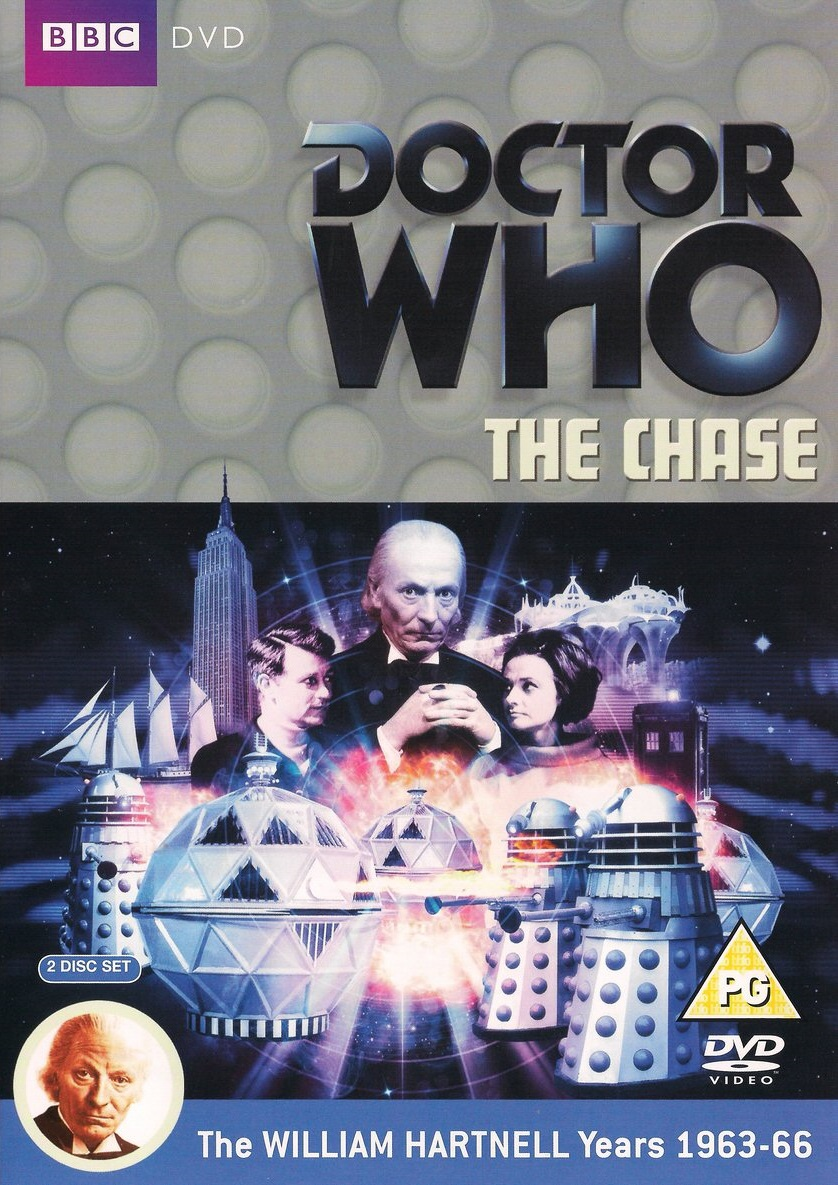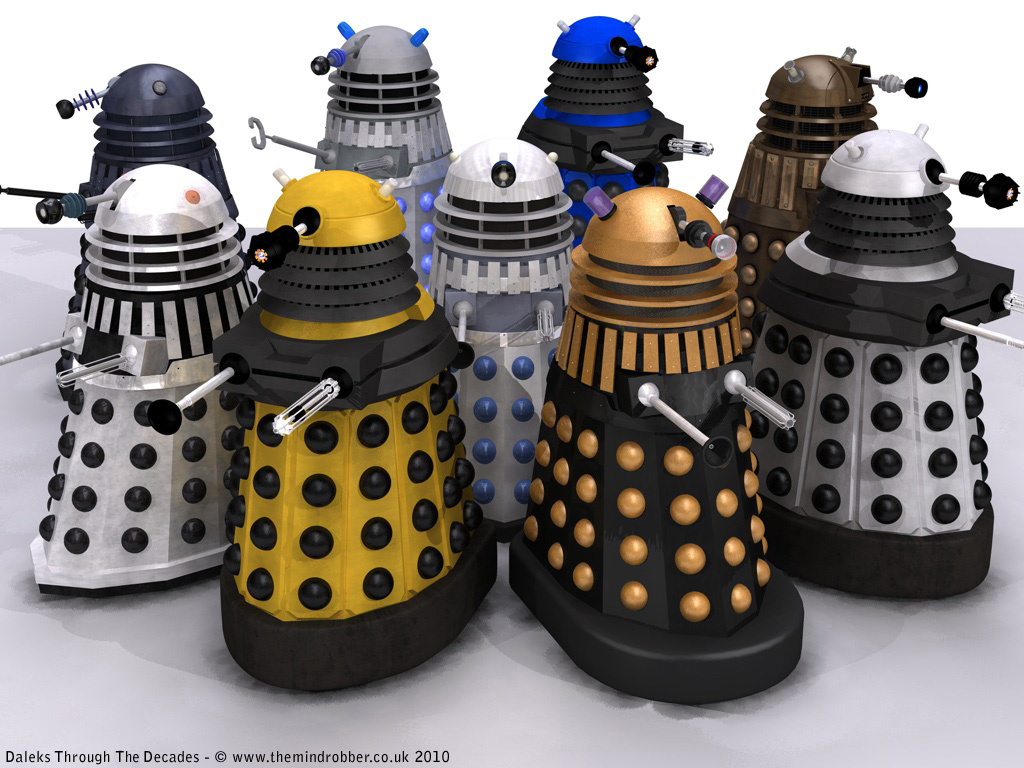 |
| Doctor Who-Genesis Of The Daleks |
Since their introduction over a decade before this particular serial was made the Daleks were presented by and large as a catalyst for the Doctor to interact with other characters,usually another race the Daleks were exploiting. Their history had not been fully explored since they were first introduced. Though the Thals and the planet Skaro had in fact been part of other Dalek related serials before,there were still a lot of questions that fans of the program probably had. How exactly had the Kaleds evolved into the Daleks? Why was it allowed to happen? And was their a single focal point,either a group or individual,who were directly involved with their creation. Well the fourth doctor,Sarah Janes and Harry Sullivan had by this point proved themselves already one of the most popular doctor/companion combinations that Terry Nation almost outdid himself by providing this-the first and probably most compelling and provocative Dalek stories of the Tom Baker era.
The Doctor,Sarah and Harry are sent sans the TARDIS to Skaro during their thousand years war by the time lords in order to discover a way to keep the highly destructive Daleks from coming into existence. Given a time ring as the only means of returning the TARDIS crew find themselves in the middle of a poison gas attack and dragged into the Kaled dome,with the exception of Sarah. The Kaleds are planning a massive offensive against their enemies the Thals,the Kaleds viewing themselves as the superior race. They confiscate the time ring. The doctor also meets up with a Kaled mutant calling himself Davros,who is in large of developing this last offensive. It comes in the form a mechanical hybrid of Kaled mutants he calls...Daleks. And in an attempt to recapture it the doctor is placed under arrest and questioned by a Kaled scientist. This scientist himself understands the Daleks are a dreadful and terrible weapon and for helping the doctor escape he himself is killed by orders of Davros.
Meanwhile Sarah has befriended a group of Mutos,mutated Kaleds and Thals who have learned of a final massive strike on the part of the Thals against the Kaleds that would wipe out their dome. The doctor meanwhile is in the midst of a three prong conflict. First the one was Davros,who openly shows no compunction for wiping out a species in any manner necessary to suit his need for absolute power,his manipulative Security Commander Nyder who presses himself to divide and conquer anyone around him and his main mission. He is in fact given one opportunity to bomb the Dalek lab. But ethically he is troubled by the possibility of himself committing what amounts to an act of racial genocide. In the end of the story the Kaled dome is destroyed,even with Sarah and the Mutos best efforts to stop the attack. And even though they essentially failed in their mission,they do relocate the time ring and it's made clear that the doctor feels a completely clean conscience in his decision.
This is probably the most well rounded and morally complex Dalek story ever written. This is the one moment where the doctor is given the opportunity,in one famous scene,to destroy the Daleks before they come to exist with a mere simple bomb. His contention that many species throughout the universe would unite together in peace in defience of the Daleks seems very much motivated by his knowledge that Davros (and many of his Kaled supporters) have become such megalomaniacs they no longer place any value in life aside from themselves. You also see the divisions within the Kaleds,which is very much parallel to the real life gap between scientists and militarists. The Kaled scientists are mostly concerned Davros has gone too far in his creating the emotionless Daleks and unite against him after a time. We are also left to wonder if,though the doctor didn't succeed 100% in his mission by the time lords if he at least changed history enough so the Thals and Kaleds had something important to think about. An very well written and socially aware story.












